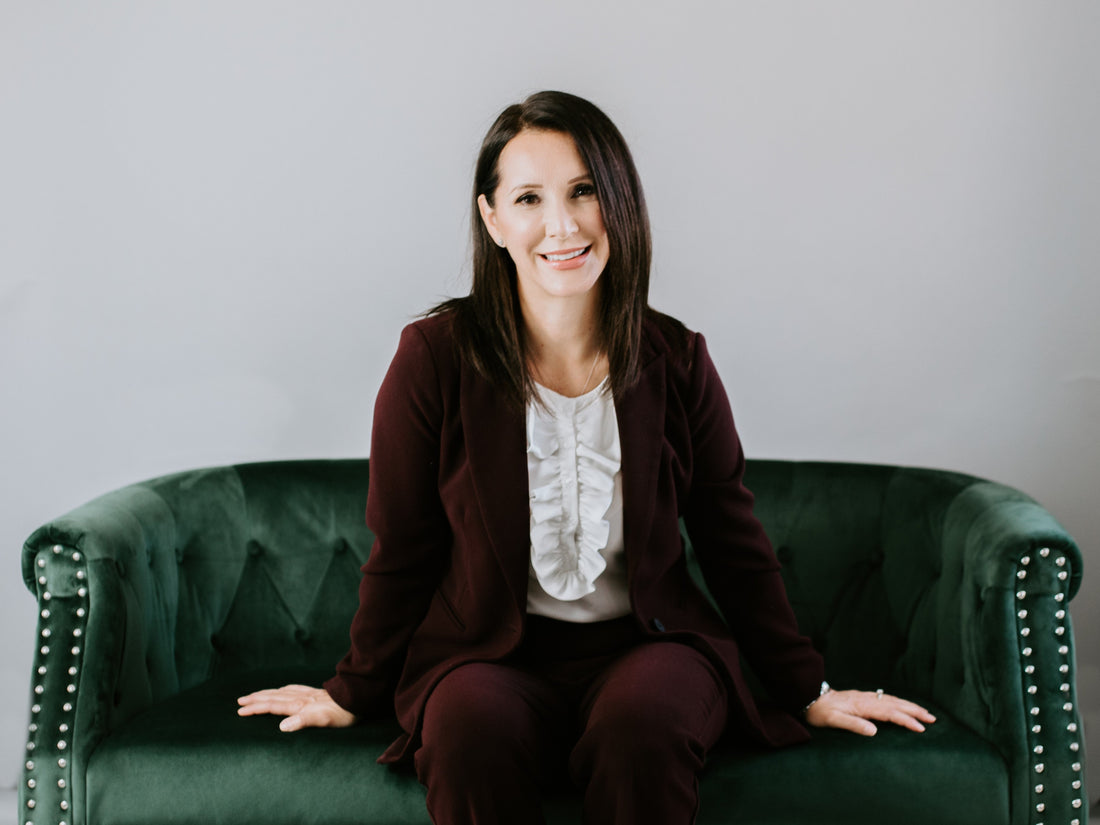
Q & A with Sharlene Rutherford, President and CEO of the Alberta Women’s Health Foundation
Share
Together, let's close the gap in women's mental health. From Black Friday (Nov. 26) until Giving Tuesday (Nov. 30), Unbelts will donate $5 from every belt purchased towards expanding mental health research and resources across Canada in partnership with the Alberta Women’s Health Foundation.
Last month, Unbelts met with the Alberta Women’s Health Foundation (AWHF) to chat about how we might work together to support women’s health initiatives during the Black Friday - Giving Tuesday weekend.
From November 26 - 30th, we’re focusing on funding the Alberta Women’s Health Foundation - specifically, the research being conducted by Dr. Kingston and her team. Through understanding comes innovation, and through innovation comes treatment and prevention.
Every community member who identifies as a woman deserves progress here - women and gender minorities have suffered disproportionately during the pandemic, and we want better for you and for ourselves.
This week, we had a chance to talk to Sharlene Rutherford, President and CEO of the Alberta Women’s Health Foundation (AWHF), about gender bias in health and how AWHF is working to close these gaps.
Gender bias in health has existed for a long, long time. What's gotten better in the last few decades? What hasn't improved?
We have understood for some time now that there are many gaps and disparities that exist in women's health—a lack of funding for women-specific research, a lack of representation of women in clinical trials, a lack of understanding of women-specific diseases and conditions.
And, more recently, a lack of understanding of how the pandemic has made these disparities all the more evident.
However, in the last two decades, women began to be included in medical research trials for drug therapies and it is now mandatory to do so in most (but not all) cases. Still, there is a wide and historical knowledge gap that exists resulting in women being misdiagnosed, neglected, dismissed as complainers, accused of being overanxious, mislabeled as depressed, or told their symptoms are all in their heads.
Alberta Women’s Health Foundation is working hard to close the knowledge gap through support for the Women and Children’s Health Research Institute (WCHRI). WCHRI supports research excellence dedicated to improving the health and lives of women and children.
WCHRI was founded in 2006 as a partnership between the University of Alberta and Alberta Health Services, with core funding for women's health research provided by the Alberta Women's Health Foundation (AWHF). This dedicated focus on women's health research has begun the critical work of closing the gaps that we know still exist.
Excellent health outcomes are the direct result of ongoing investment in health research. Through partnerships with organizations like Unbelts, we can raise funds that make change possible.
What are some of the consequences of women's health being sidelined?
Women’s health is a key part of population health.
When you look at it through that lens, it becomes evident that if we take steps to improve the health and lives of women and marginalized genders, we are also enhancing the well-being of our communities, societies, and at large our country's economy.
When women's health is sidelined, entire families suffer. We saw the proof of this in our recent Finding the Fractures report. Within its pages, we bring together data and evidence of the current disparities in women's health. We uncover stories of women's worsening mental and physical health and of their many challenges juggling medical appointments, childcare, and work commitments.
From playing the role of educator in the home when children were pulled from school to caring for elderly parents, our report shows that women took on the lion's share of the increased responsibilities during the pandemic. These increases resulted in a deterioration in their physical and mental health and negatively affected their careers.
What kind of change do you want to see in the way our broader community approaches women's health?
I believe it all begins with awareness building. For instance, we did not grasp the true extent of the pandemic's disproportionate impact on women in our province, so we sought to understand, and asked. Now that we have produced a report to share our findings, we can continue executing our brand's mission to strive for equity in women's health by building awareness around the disparities that exist.
The AWHF report outlines the fractures and gaps that exist in this sphere. How can we as a society work to close those gaps and eliminate those inequities?
We at the AWHF are calling upon our community members, policymakers, and thought leaders who have an opportunity to make change to assist us in raising awareness of these issues and facilitate the discussion on where we go from here.We are asking all levels of government to ensure that women's health recovery is a key part of a successful post-COVID recovery plan for our economy.
We recently saw some excellent news through the announcement of a partnership between the federal and provincial governments across Canada to provide affordable childcare options, but let's not wait to enact that. We need this to happen sooner than later. Women want to fully participate in the workforce and build careers, they want to not miss medical appointments and screenings, and women need to take time to take care of themselves, as well as their immediate and extended family members.
We believe our report should inform the public sector, the not-for-profit sector, and also the private sector. We want owners of private companies to consider what this report says about their employees, clients and customers. Owners need to consider what they are saying to employees when a request for time is made because a child is sick, or an ageing parent needs assistance. These are things we all need to be aware of.
